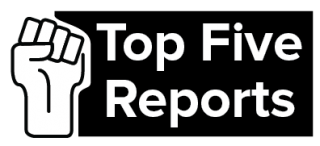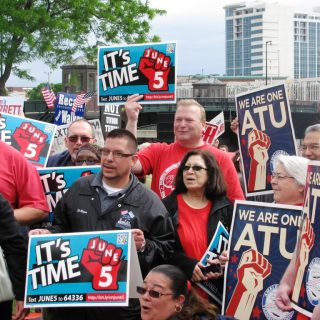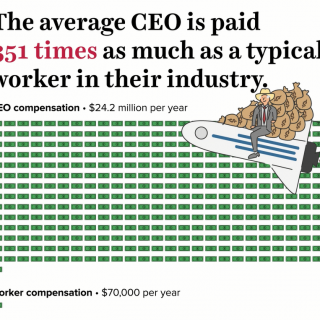Top EPI reports of 2021 focused on economic injustice and its remedies

As the nation pivoted to recovery, readers sought information on ways to remedy the economic injustices laid bare by the pandemic. Given the heavy burden borne by low-wage front-line workers, it is no surprise that raising wages, boosting worker power, and scrutinizing excessive compensation of people at the top were highest on the reading list. Here’s a countdown of EPI’s most-read reports in 2021.
Unions help workers hold onto jobs
Evidence that unionized workers had more job security during the pandemic reinforces the need to dismantle barriers to union organizing.

Low-wage workers were hit hardest by recession
The crushing blow to low-wage workers from the pandemic-induced recession underscores the need to strengthen their still relatively weak bargaining position.

CEOs were paid 351 times as much as a typical worker in 2020
Anti-trust enforcement and other measures to reign in skyrocketing CEO pay (up 1,322% since 1978) would help reduce inequality without hurting the economy because high CEO pay has nothing to do with their productivity.

Eliminating poverty-level minimum wages would help the federal budget
Raising the federal minimum wage to $15 would cut annual government expenditures on major public assistance programs by between $13.4 billion and $31.0 billion—and increase federal tax revenues.

32 million workers would get a $3,300 pay boost from raising the minimum wage
A $15 federal minimum wage would deliver a pay boost to a fifth of the workforce and disproportionately help Black and Hispanic workers. Nearly one in three Black workers and one in four Hispanic workers would get a raise.

Enjoyed this post?
Sign up for EPI's newsletter so you never miss our research and insights on ways to make the economy work better for everyone.